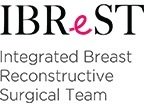Targeted Therapy
Targeted therapy is a type of breast cancer treatment which involves targeting cellular processes to stop the Targeted therapy is a type of breast cancer treatment, which involves targeting cellular processes to stop the growth of cancer cells. The drugs used in this therapy usually target proteins or molecules of the cells involved in the growth and survival of the cancer cells. Targeted therapies are more specific to cancer cells, unlike traditional chemotherapy. The most well known targeted therapy is trastuzumab (Herceptin)
Some breast cancer cells have a higher than normal level (known as overexpression) of a protein called HER2 (human epidermal growth factor receptor 2) on their surface, which stimulates them to grow. Around 15–20% of invasive breast cancers have this and are called HER2 positive. These cancers tend to grow and spread faster than HER2 negative breast cancers.
Trastuzumab works by attaching itself to the HER2 proteins (also known as receptors) so that the cancer cells are no longer stimulated to grow. It also helps the body’s immune system destroy breast cancer cells.
Only people with HER2 positive breast cancer will benefit from having trastuzumab. If your cancer is HER2 negative, then trastuzumab will not be of benefit to you.
Trastuzumab is given to people with primary breast cancer after surgery and chemotherapy (and sometimes alongside chemotherapy) to reduce the chances of the breast cancer coming back or spreading. This is known as adjuvant treatment. Sometimes, chemotherapy and trastuzumab are given before surgery. This is known as neo-adjuvant treatment. If you’re offered neo-adjuvant chemotherapy and trastuzumab your specialist team will explain why.

 Gosford
Gosford






